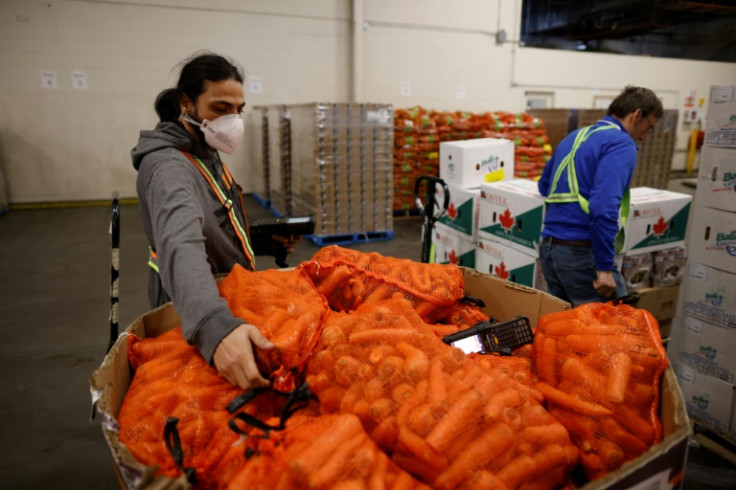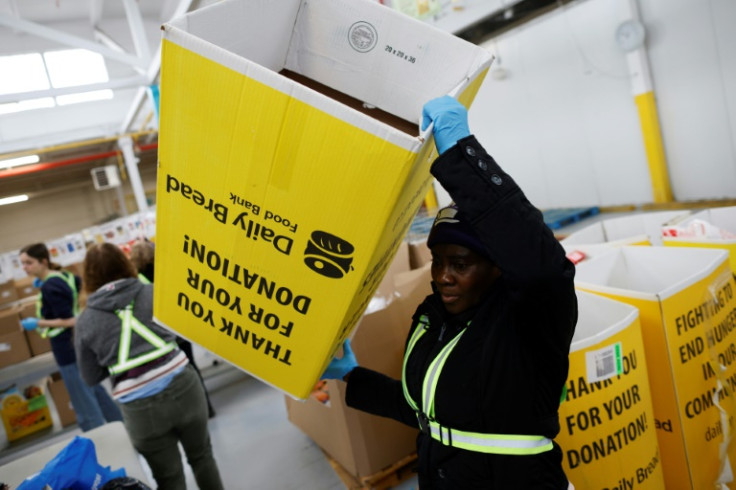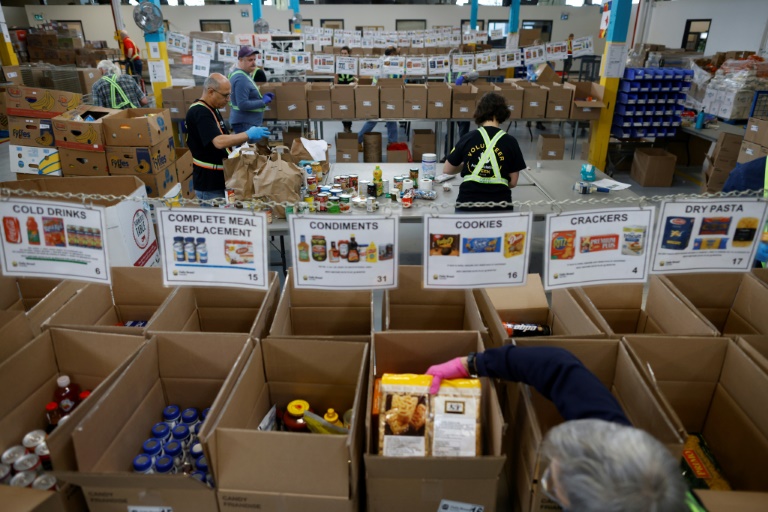AFP
Hundreds of thousands of people stream in each month to the Daily Bread Food Bank in Toronto, its chief executive says, as galloping inflation continues to squeeze Canadians’ grocery budgets.
“We are absolutely in a food crisis in this country and certainly in the city of Toronto,” Neil Hetherington said in a recent AFP interview.
His organization saw the number of people using its services double during the Covid-19 pandemic to an average of 120,000 per month, which continued to rise to a record 270,000 in March.
Of the newcomers to the 128 food banks across the Toronto area affiliated with Daily Bread, many have full-time jobs but still can’t seem to make ends meet, Hetherington said as volunteers sorted through donations at its depot in a suburb of Toronto.
Although overall inflation has cooled to 4.3 percent in March from a peak of 8.1 percent last June, food inflation remains stubbornly high at around 10 percent year over year.
Hetherington noted that accommodations — both rentals and homes for sales — are also out of reach of many Canadians after a jump in real estate prices last year, compounding cost-of-living woes.
According to a report by the real estate firm Urbanation, the average cost of a studio apartment in Canada’s largest city is 2,124 Canadian dollars (US$1,568) per month, up about 380 Canadian dollars from last year.
Ryan Patcheson said he started coming to the food bank 18 months ago. He receives disability benefits but says it’s not enough to live on.
“It makes a world of difference when you get a couple of bags of rice at the end of the month and some potatoes” from a food bank, Patcheson, who is in his thirties, told AFP.
Visitors to food banks in Montreal echoed that sense of despair and need, with long queues for handouts observed at the Saint-Gilbert church. Its basement is used by the Association Alerte-Providence to distribute food on Wednesdays.
“Demand has been increasing every week” for its services, says Paula Alerte, who has run the association for over three decades and started the food bank about 10 years ago.
She says that donations are not always enough, so she sometimes buys bulk foods herself to distribute to clients.
“I understand that everything is more expensive but we can’t live without food.” “The need is there,” she said, pausing to hand out bags of food before adding: “Every Wednesday, I worry about not having enough for everyone.”
The lineup of mostly young people, retirees and immigrants at the church moves slowly.
“Prices for everything have shot up,” lamented shopper Luis Lara, 66. “You can’t afford to buy as much as you used to from the supermarket anymore.”
“Vegetables are really too expensive for me at grocery stores, so I come here,” says Sofiia Slobodianiuk, a 20-year-old Ukrainian national who recently landed in Canada and was making her first visit to a food bank.

AFP

AFP







